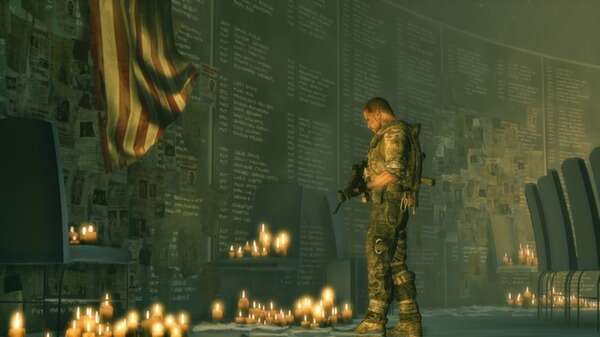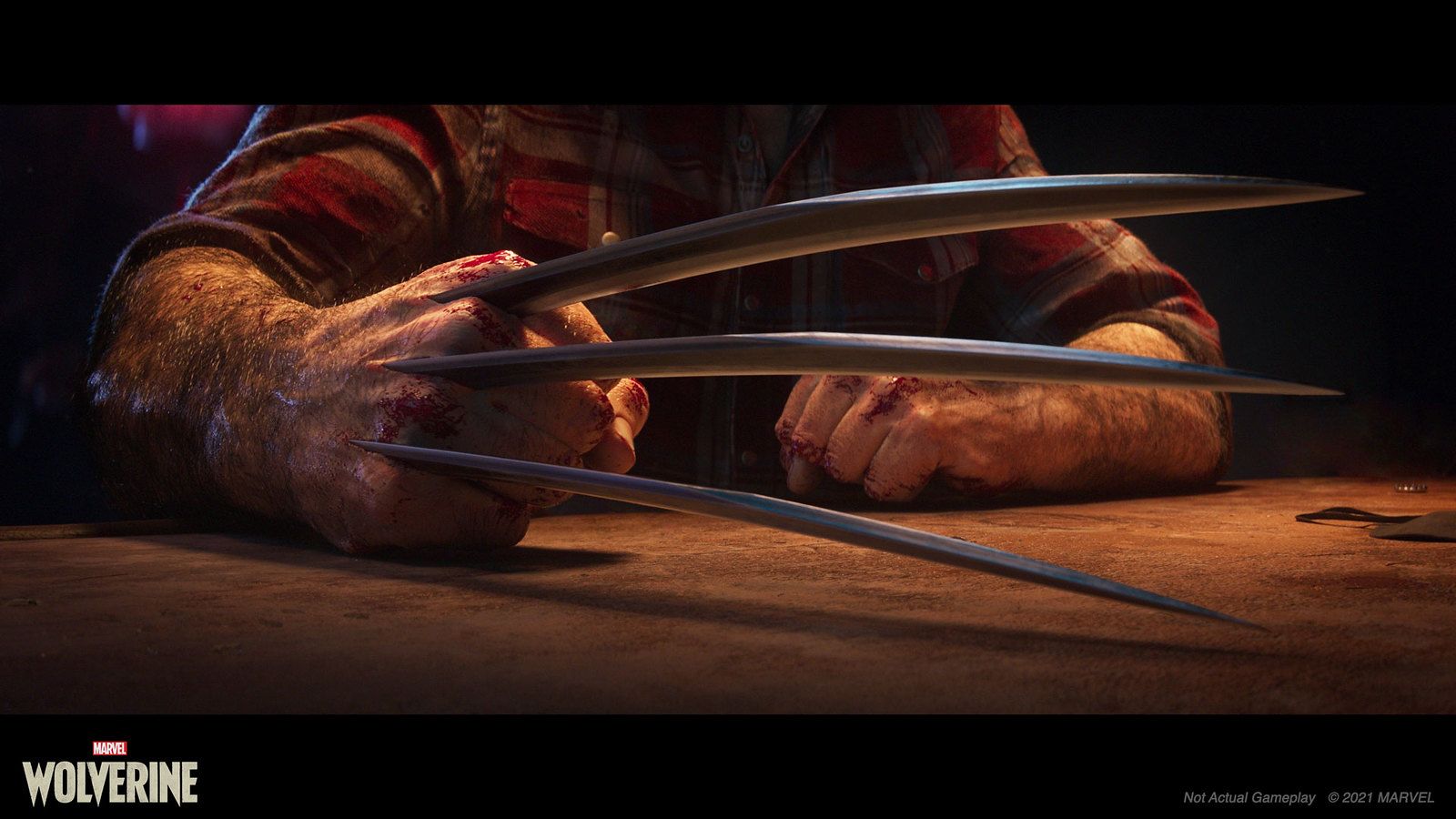IbizaPocholo
NeoGAFs Kent Brockman

Spec Ops: The Line Remains The Best Exploration Of Bloodlust In Games
On the tenth anniversary of Spec Ops: The Line, a look back at a military shooter that subverted its own genre.
When Spec Ops: The Line was released in 2012, military shooters were still at the height of their power. Just shy of five years on from Call of Duty: Modern Warfare, to make a military shooter during this Imperial Phase was typically presented as an objective search for authenticity draped in the flag of solemn respect for the troops, a dual approach designed to avoid uncomfortable questions around the genre's obeisance to and glorification of the military-industrial complex.
In stark contrast to its contemporaries, Spec Ops refused to shirk uncomfortable questions. It takes for granted that it's a bit f***ed up to enjoy video game violence. Then it goes a step further: It seems to actively despise its own existence. Over the course of its single-player campaign, Spec Ops: The Line is unwavering in its commitment to the idea that not only is the protagonist of a military shooter a psychopath, but that our demand for and enjoyment of them reveals something deeply ugly about our culture.
Developed by German studio Yager Development, who had previously made the sci-fi flight combat game Yager (2003), and published by 2K Games, Spec Ops: The Line tells the story of Captain Martin Walker, the playable character, and his two squadmates, Sergeant John Lugo and Lieutenant Alphonso Adams, a Delta Force team on a recon mission into the heart of sandstorm-devastated Dubai. They are attempting to make contact with Colonel John Konrad, commander of the 33rd Infantry Battalion, who had been leading relief efforts in the city until the storm severed all communication and the UAE government designated Dubai a "no man's land."Konrad's name is an on-the-nose reference to Joseph Conrad, author of Heart of Darkness, the late 19th century novel that critiqued imperialism and provided the inspiration for the Vietnam War film Apocalypse Now.
Walker and company are sent to investigate after a radio message finally emerges from the dust-shrouded city: "This is Colonel John Konrad, United States Army. Attempted evacuation of Dubai ended in complete failure. Death toll... too many." When they arrive, the trio find themselves caught up in a three-way struggle for power between Konrad loyalists, a splinter group of 33rd soldiers who mutinied against Konrad, and the CIA-backed locals trying to drive Konrad--and indeed every American--out of their city. What began as a straightforward rescue quickly becomes more complicated. As events evolve, and facts continue to slip from their grasp like sand between fingers, Walker, Lugo, and Adams try to remind themselves that they must stick to the mission. "Anybody think we should try talking to these guys again? I mean, we did come here to save them," says Adams. But, gradually, as the bodies continue to pile up, inevitably they find themselves unable to discern what that mission is. "Man, we are way past that point," replies Lugo.
As a third-person shooter, Spec Ops adopts many of the gameplay features of the genre. In this sense, it adheres to the formula and resists experimentation. Walker will stick to cover with a press of a button in much the same way as Gears of War popularized some years earlier. Similarly, you aim with left trigger and shoot with right trigger. Holding A sees Walker sprint, B vaults over cover, X hits enemies in melee range, and Y tosses a grenade. Squad commands are minimal and context-sensitive; you can tell Lugo and Adams to prioritize specific targets with the tap of a button, but otherwise they pretty much get on with the job of doing very little and leaving the shooting to you.
Mechanically, it must be said, Spec Ops: The Line is competent but not particularly interesting. Where it is notable, however, is in its narrative and in its critique of the broader medium. That's partly what drew video game critic Brendan Keogh to write a book about it. In 2012, some months after the release of the game, he published "Killing Is Harmless," a 50,000-word critical reading of Spec Ops: The Line. Keogh wrote it to explore how Yager questions why we enjoy video game violence and the way players can consider their own complicity in perpetrating virtual war.
"What I found interesting about Spec Ops wasn't just what it said about video games and violence, but how it said it," Keogh tells me over email, a decade later.
"It can't really be boiled down to any one twist moment like BioShock's 'Would you kindly' moment, but rather it's in how the game systems, visual tropes, and character development slowly shift over the time. An action at the start of the game and the same action at the end of the game can feel radically different because of broader contextual shifts in the narrative and visual presentation."
As Walker, Lugo, and Adams journey deeper into Dubai's "heart of darkness" and their mission dissolves before their very eyes, they begin to fray. Physically, the three of them bear the scars of their experience. Blood stains, torn clothing, and deep wounds are depicted as permanent changes to their character models. Their physical actions become more ragged; melee attacks transform from swift knockouts to brutal pummellings. Likewise, the cool detachment of their early communications boils over into hoarse screams of "Reloading!" and streams of curse-laden epithets. By the end of the game, these men are entirely untethered, not only from their original mission but from reality itself.
"It was these gradual transitions that fascinated me about the game and which I wanted to capture," explains Keogh. "It felt like the only way to do that was to narrate an entire playthrough in a way that drew attention to those subtle transitions and shifts in tone. I definitely didn't have plans to 'write a book about a videogame' before I played it. It was just the right format to explore what I wanted to explore about that game."
Spec Ops arrived at a time when commercial video games, from both major publishers and independent developers, were self-consciously reflecting on the nature of being a video game. Not just BioShock (2007) and its famous "Would you kindly…" line, but games such as Braid, The Stanley Parable, Nier, Far Cry 2, even Portal were exploring what player agency meant in a video game, its strengths and its shortcomings, and the types of experiences the idea engenders. Perhaps more than any of them, Spec Ops: The Line wanted to reject the concept of video games as power fantasy.
Check the link for more.
Thanks mods for the title change

Last edited:



